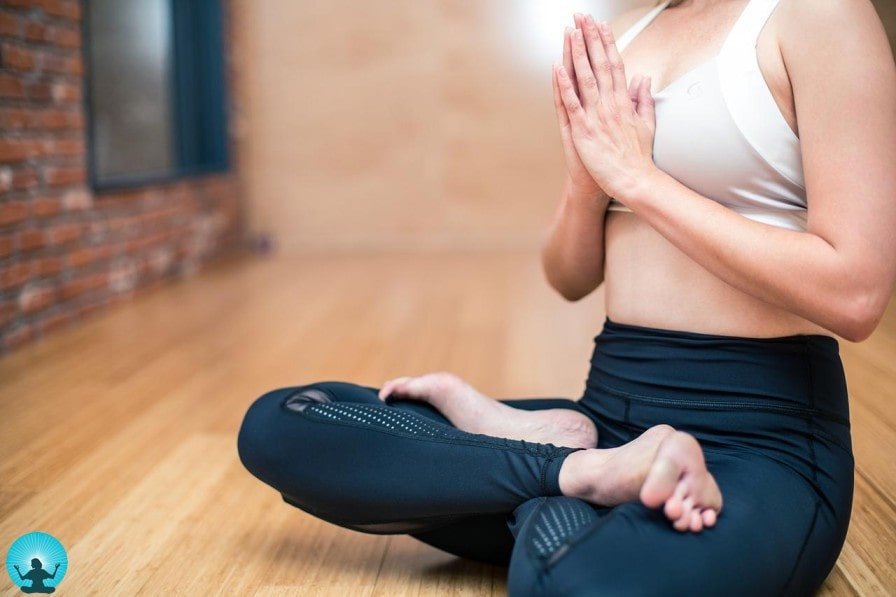Meditation is one of immortal to our life, but it is not an easy and familiar way in our life. If it was, why do so few people practice it? It’s an art, and it takes time and patience to master it. The question on your mind is, “How can I meditate to relax my mind?” or “What is the best technique for mind relaxation?” There are multiple strategies available, but the main players are breathing meditation and visual meditation techniques. And the best technique for mind relaxation varies according to what kind of meditation you’re trying to achieve.
The easiest way to get started with meditation is with guided meditations. These are recordings that tell you what to do and help guide you through the process of meditation.
You can also learn how to meditate on your own by following these simple 2 steps:
How to meditate on your own
Step 01
Find a comfortable place where you won’t be disturbed for at least 5 minutes. You may want to sit or lie down, but if that isn’t comfortable for you, sit upright in a chair (or even better, stand up!). All that matters is that you’re comfortable and able to stay still without falling over or getting distracted by anything around you!
Step 02
Take some deep breaths and relax all of your muscles as much as possible. If this feels difficult at first, try it for a few seconds at first and then gradually increase until it becomes second nature!
Meditation is a powerful tool to help improve your mental health and relax your mind. There are several meditation and mind-calming activities to choose from. This article will cover different methods you can use immediately to relax your mind from a difficult day at work or any other problems or concerns.
There are a variety of strategies to unwind your thoughts. Meditation is the best way to calm the mind and relax. The best meditation for relaxing the mind is the one that you like. You can choose from many types of meditation, such as mindfulness meditation, yoga Nidra, mantra meditation, and so on.
Suggested Relax Log: How to support Yoga to your mind relaxation at home ( Included Yoga steps)
Mindfulness meditation
Mindfulness meditation is one of the most popular meditation techniques used to relax the mind and body. It’s a simple process of focusing attention on different aspects of your experience to reduce stress and develop a better understanding of yourself. Mindfulness can be practiced anywhere, at any time, and it doesn’t require any special preparation or equipment.
Mindfulness meditation involves focusing on one thing at a time in the present moment without judgment or other distractions. This sort of meditation has been demonstrated to alleviate stress by helping people deal with negative emotions such as anxiety and depression. Mindfulness meditation also helps increase focus and attention span by calming down the mind and making it less reactive to stressors in everyday life.
Yoga Nidra
Yoga Nidra means “yogic sleep.” It’s a type of guided relaxation practice where you focus on different parts of your body while lying down on your back in the savasana pose (corpse pose). This helps reduce stress by letting go of thoughts while focusing on something else like breathing or movement in different parts of your body.
Mantra meditation
In this form of meditation, instead of letting your mind wander, you focus on silently repeating a word, concept, or phrase that brings you peace.
The first step is to find a quiet place where you can sit comfortably and lie down if you wish. Make sure you’ll be able to concentrate without getting distracted by anything.
Next, take deep breaths, inhaling through your nose and exhaling through your mouth. This may be done with your eyes closed or open. — whatever feels more natural for you. If it helps, imagine that each breath is coming from the floor beneath you and moving up through your body until it exits via your skull (or vice versa).
Once you feel relaxed enough to begin meditating, try focusing on one thing at a time: Your breathing, for example, counting backward from 10 to 1 with each breath or focusing on an object in front of you, such as a candle or painting.
What is the best technique for mind relaxation?

The solution is simple: meditation. People have been doing meditation for thousands of years. And it can be a powerful tool for reducing stress. It involves focusing on breathing, a mantra, or other techniques to clear your mind.
01 Breathing exercise:
This is an excellent way to relax your mind and body. You should sit down in a comfortable place and close your eyes. Then try to breathe slowly, deeply, and calmly. While you breathe in and out, try to focus on your breath. Do not think about anything else but your breathing. The more you use this strategy, the better, the easier it will be for you to relax your mind and body.
02 Counting:
Another method that helps you relax is counting. For example, count from 1 to 5 or 10 times slowly and then start again from 1 until 7 or 8 times. This is an effective way to help you control your thoughts and calm down after a stressful day at work or school.
03 Visualization:
If you cannot concentrate on something specific like breathing or counting, then visualization can also help relax your mind and body. For example, imagine yourself having a nice vacation at the beach or lying down under the stars at night with no worries! This kind of visualization will definitely relax both your mind and body immediately!
04 Music therapy:
listening to music can also help relax your brain instantly, especially if.
It is possible to relax your mind in just a few minutes. As soon as you find a target for meditation in everyday life, you will have time for relaxation and mental freedom. Biofeedback games teach your brain to relax by stimulating specific zones that trigger an involuntary response: To relax, our brain needs more oxygen and lower blood pressure. To induce the necessary response, it is enough to glance at the slow-running clock hands. In addition, the pulse evens out because you do not feel any stress or anxiety in the game.
The physical and emotional benefits of meditation

- Understanding stressful situations in a different light
- Improving the quality of sleep
- Reduced heart rate at rest.
- Increased self-awareness as a result of stress management skills development
- Stress reduction by focusing on the present moment
- Building a more flexible mind
- patience and tolerance for more and more
- Maintaining an average blood pressure level
Symptom management may be helped by meditative practices
- Cancer
- Anxiety
- Chronic pain
- High blood pressure
- Sleep problems
- Depression
- Asthma
- Heart disease
- Irritable bowel syndrome
- Tension headaches
“ Take a breath well & find your relaxation“



